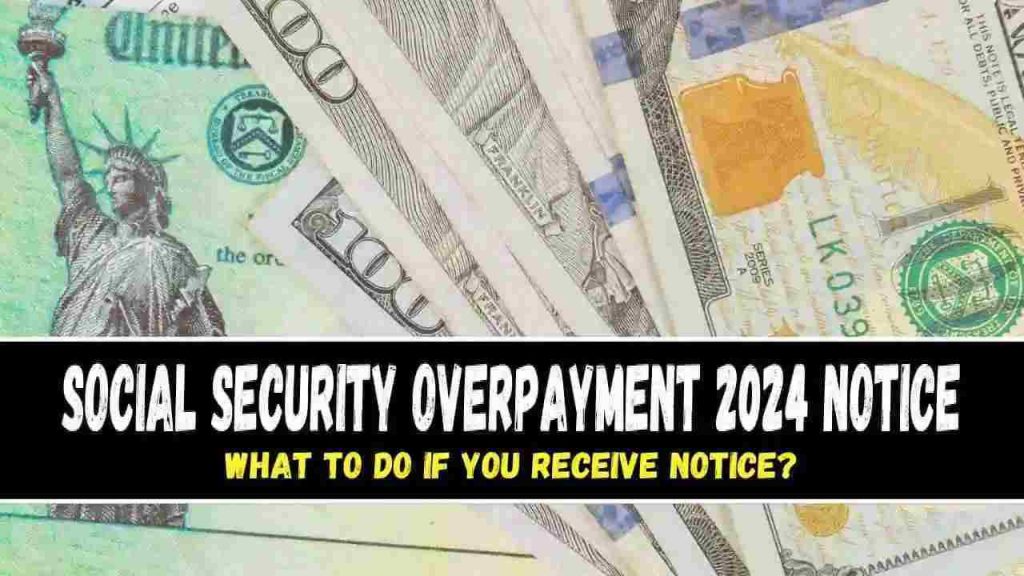For many people, Social Security benefits are a vital source of income. The intricacy of the system, however, occasionally leads to beneficiaries getting paid more than they are legally entitled to a situation referred to as a “overpayment.” This article explains overpayments, including what they are, how they happen, what to do if you get a notice of one, and how to handle situations like this with appeals, exemptions, and payback plans.

Understanding Social Security Overpayments
What is an Overpayment?
In the context of Social Security, an overpayment happens when a person receives more payments than they should have. This may occur for a number of reasons, such as changes in your financial circumstances that you fail to notify the Social Security Administration (SSA) of, SSA computation errors, or inaccurate or out-of-date personal data. The SSA is legally obligated to notify the recipient via mail when an overpayment is discovered, including the circumstances and possible courses of action.
Common Causes of Overpayments
- Changes in Income: Not reporting an increase in your income can lead to receiving more benefits than you are entitled to.
- Living Arrangements: Changes in household composition can affect your benefit amount.
- Work Status: Failing to notify SSA about your employment status can result in incorrect benefit calculations.
- Marital Status: Changes in marital status can also impact benefit amounts and eligibility.
What to Do if You Receive an Overpayment Notice
Review the Notice
When you receive an overpayment notification, you should carefully read it first. The overpayment amount, the reasons for it, and the time period it covers are all covered in detail in this paper. Determining your next course of action requires an understanding of these specifics.
Responding to the Notice
After reviewing the notice, you have several options:
- Repayment: Arrange to return the overpaid funds.
- Appeal: If you believe there has been a mistake, you can file for a reconsideration.
- Waiver: If repaying the overpayment would cause you financial hardship or if the overpayment was not your fault, you might qualify for a waiver.
Appeals and Waivers
Filing an Appeal
Use the SSA-561-U2 form, also called the Request for Reconsideration, to file an appeal if you disagree with the overpayment determination or the estimated amount. You have sixty days from the date you receive the notice to complete this.
Requesting a Waiver
The SSA-632-BK form, Request for Waiver of Overpayment Recovery, is used to request a waiver. This is an option if you were not at fault for the overpayment or if repaying it would put you in an unreasonable amount of difficulty. Requests for waivers are accepted at any time.
Repayment Options
The SSA provides flexible payback alternatives in the event that a waiver is not granted. These plans, which start at just $10 a month, take the beneficiary’s financial situation into account. The goal of this flexibility is to lessen the financial burden on people who receive Social Security benefits.
Recent Changes and Supports
Reduced Withholding Rate
The default withholding rate for recovering overpayments has been lowered by the SSA recently. Ten percent of your monthly benefit, or $10, is the new rate, whichever is higher. The purpose of this modification is to lessen the financial strain on beneficiaries who must recover overpayments.
The Ticket to Work Program
A free and voluntary program called “Ticket to Work” was created to assist SSI and SSDI recipients, who are between the ages of 18 and 64, in finding jobs and becoming financially independent. Beneficiaries can learn how to successfully manage their benefits through this program, including how to prevent overpayments, and gain access to useful resources.
Learning More About Ticket to Work
People can visit the SSA website or call the Ticket to Work Help Line to learn more about the Ticket to Work Program. In order to help recipients navigate the intricacies of work incentives and overpayment prevention, this initiative includes webinars, texts, and other materials.
It can be difficult to navigate the complexities of Social Security overpayments, but being aware of your rights and options can make things much easier. You may steer clear of overpayment traps and preserve your financial security by being proactive and knowledgeable about how to manage your Social Security benefits.
FAQs About Social Security Overpayments
What triggers a Social Security overpayment?
Overpayments can occur due to changes in your income, living arrangements, marital status, or work status that are not promptly reported to the SSA.
What should I do immediately after receiving an overpayment notice?
Review the notice carefully, understand the details, and decide whether to repay, appeal, or request a waiver based on your circumstances.
How can I appeal a Social Security overpayment?
You can appeal by filing a SSA-561-U2 form within 60 days of receiving your overpayment notice.
What are the criteria for obtaining a waiver on a Social Security overpayment?
You must demonstrate that the overpayment was not your fault and that repaying it would cause financial hardship.
Are there any new changes in the repayment process for overpayments?
Yes, the SSA has recently reduced the default overpayment withholding rate to ten percent of your benefit or $10, whichever is greater, to lessen financial strain.
If you want to Latest Update of Finance then Visit stevedigioia.com Here



